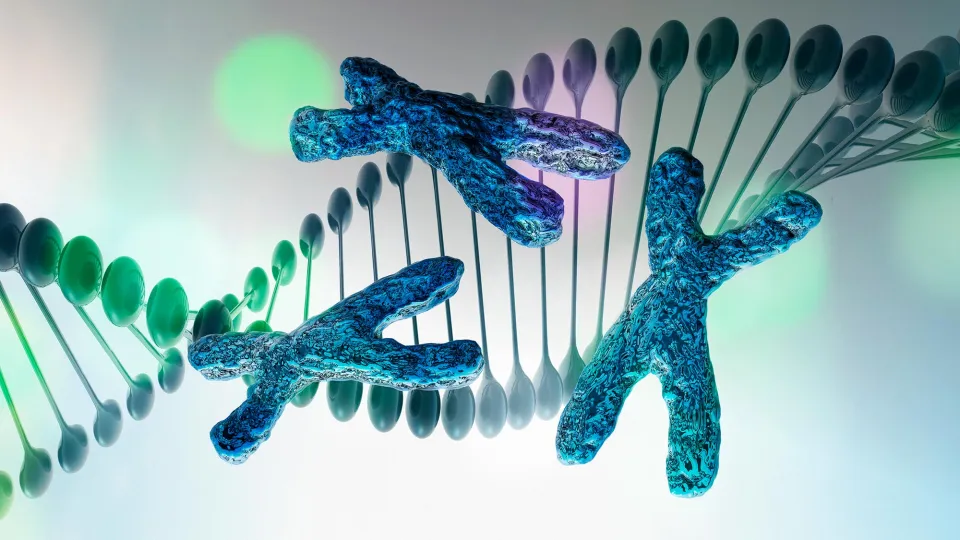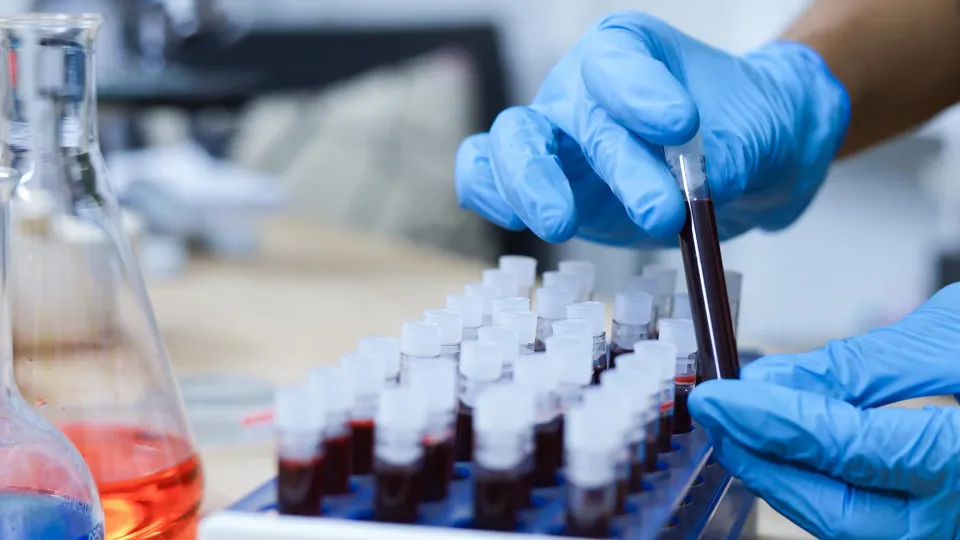Feature
Einstein Medical Student Awarded Sarnoff Research Fellowship
February 9, 2023
In high school, third-year medical student Nick Forelli could not have dreamed of winning a cardiovascular research fellowship or working in a state-of-the-art laboratory. An all-around athlete who played football and baseball and was into weight training, he worked afternoons and weekends as a personal fitness trainer at an athletic club in Huntington Station, NY. He also assisted in his family’s plumbing business.

On one job, “I was lying on my back in the crawlspace of a middle school basement, fixing the irrigation system and it occurred to me, if I didn’t make a change, I’d be doing that for the rest of my life,” he said. While the work involved helping others, he knew he wanted something different. He began setting aside part of his pay for a college education.
From Wrench to Bench
Nick recalls receiving a microscope as a gift when he was 6. “I loved looking at everything I could find—from microbes in pond water to butterflies,” he said. As he entered the Bachelor of Applied Science track at Farmingdale State College, the notion of becoming a physician was in the back of his mind.
Among the courses he selected was anatomy. “In the class, there was a single slide on the citric acid cycle, and I was fascinated by the fact that a bunch of molecules undergoing these transformations are what make life tick,” he said. It was then he knew for certain that he wanted to pursue medicine.
After two years, Nick transferred to Villanova University where he served on the executive board of the Villanova Society of Biochemistry and Molecular Biology, chaired the biochemistry mentoring program, and led an honors society. He also did undergraduate research in organic chemistry.
For extra cash, he became a tutor and teaching assistant in math and science, and, on weekends and holidays, he worked with personal training clients. “Some of the folks I trained were post-rehab, and I helped them regain their health,” he said. “It was rewarding.”
Nick graduated from Villanova in 2018 with a bachelor’s degree in biochemistry, after which he completed a gap year when he began working as a research assistant in the Brady Lab of Genetically Encoded Small Molecules at Rockefeller University. When he enrolled in the M.D. program at Albert Einstein College of Medicine in 2019, he continued his work at Rockefeller.
Hard Work Rewarded
During first year, Nick and his Einstein classmates attended an information session for the Sarnoff Cardiovascular Research Fellowship. The prestigious fellowship supports a year of research in a cardiovascular lab or research unit. It also provides a generous stipend and funds for health insurance, moving costs, and travel expenses to scientific meetings.

“I knew right then that I’d apply for it when the time came,” said Nick. He had long felt a connection to cardiology, noting, “As my uncles and brothers observed, in a sense, the heart is human plumbing—pipes and hoses and pumps.”
In completing his Sarnoff application, Nick worked with Richard Kitsis, M.D., professor of medicine and director of the Wilf Family Cardiovascular Research Institute at Einstein—who served as his Sarnoff Sponsor and shared insights about heart failure with preserved ejection fraction (HFpEF), the most common form of heart failure in the United States. Nick proposed a project looking at cardiovascular metabolism in HFpEF in his Sarnoff application essay.
In the fall of 2022, Nick learned he had won a Sarnoff fellowship. “I was ecstatic,” said Nick. “And I couldn’t be more grateful.”
At the University of Pennsylvania’s Perelman School of Medicine, Nick works in the lab of Zoltan Arany, M.D., Ph.D., professor of cardiology and director of the Cardiovascular Metabolism Program, which seeks to understand, among other experimental directions, how HFpEF comes about.
“Nick is in the thick of it, developing mouse models, working out mass spectrometry issues, and overall integrating fabulously in what is a very complex experimental system,” said Dr. Arany.
As my uncles and brothers observed, in a sense, the heart is human plumbing—pipes and hoses and pumps.
Nick is the first Sarnoff fellow Dr. Arany has had in his lab. He observed, “The presence in the lab of medically oriented trainee like Sarnoff fellows is immensely impactful for the rest of the lab. Biomedical research greatly needs researchers with medical insight.”
The Beat Goes On
Nick will be the first physician in his family. “They’re always interested in what I’m doing,” he said. “They do joke a little—‘If you’re going to do research, why not find a cure for baldness?’ I owe them all a great big ‘thank you’ for their tremendous support.”
When asked about the future, he said, “My plan would be to become a clinician-scientist and run a lab in therapeutic design, whether gene therapy, small molecules, or antibodies, and figure out how we can treat disease and improve people’s quality of life. That’s my dream.”
Dreams make excellent foundations for accomplishments.



